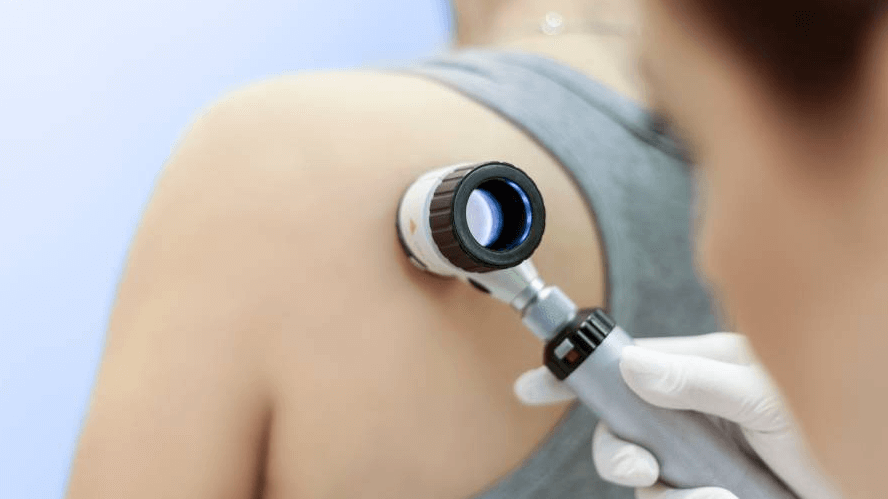What Are the Symptoms of Basal Cell Carcinoma?
&srotate=0)
Basal cell carcinoma (BCC) starts in the basal cells, which are found in the deeper layers of the epidermis. While basal cell carcinoma rarely spreads, it can still cause significant damage if left untreated.
We understand that patients have questions about the symptoms of BCC. So, what does skin cancer look like? BCC often appears as a flesh-colored, pearly bump or pink patch of skin.
Below, Dr. Ryan Schuering and his team of trained providers explore the signs and symptoms of basal cell carcinoma. Call Spyglass Dermatology to meet with a dermatologist in Tequesta, FL, and learn about your treatment options.
Understanding basal cell carcinoma
Basal cell carcinoma develops on skin that has been regularly exposed to the sun. This is because ultraviolet light damages the DNA of cells, causing them to grow abnormally. While almost anyone can develop BCC, men and women with fair skin are at a higher risk. Other well-known risk factors include a family history of skin cancer, a poor immune system, and constant exposure to radiation or certain chemicals.
What does skin cancer look like?
So, what does skin cancer look like? One of the first signs of basal cell carcinoma is a slow-growing bump or unusual patch on the skin. Here are some common characteristics of BCC to look out for:
- A small, flesh-colored, or pink bump that may have a pearly or waxy appearance
- A red patch of skin that is scaly, itchy, and bleeds easily
- A sore that does not heal or go away but keeps coming back in the same spot
- An open sore with an irregular border
These patches typically appear on the face, chest, neck, and back of the hands, though BCC can develop on any part of the body. While it rarely spreads to other areas, basal cell carcinoma can continue to grow and destroy local tissues like cartilage and bone if left untreated. If you experience any of the above symptoms, see a dermatologist in Tequesta, FL as soon as possible.
What happens during a basal cell carcinoma assessment?
At Spyglass Dermatology, we use various tools and techniques to diagnose BCC. During a skin cancer assessment, Dr. Schuering and his team of trained specialists will perform a thorough examination of the area, looking for any abnormal growths or changes in the texture and color. We may also use cutting-edge tools to take a biopsy of the suspicious area and send it to a lab for further analysis.
Treatment options for basal cell carcinoma
Basal cell carcinoma is highly treatable if caught early. A dermatologist at Spyglass Dermatology offers several effective treatment options for BCC, including:
- Mohs surgery: This procedure involves removing layers of cancerous cells until no abnormal cells are left. Mohs surgery allows for the clean, precise removal of cancerous tissue without damaging healthy skin.
- Simple excision: While Mohs surgery removes thin layers of tissue until all cancerous cells are gone, this method removes the entire tumor in one piece. A simple excision is typically used for larger or more invasive basal cell carcinomas.
Book a skin cancer screening for BCC
Symptoms of basal cell carcinoma can be subtle at first, which is why it's important to book regular skin cancer screenings with a dermatologist. If you have concerns about your skin health, call Spyglass Dermatology and book an appointment with Dr. Ryan Schuering or one of our experienced providers in Tequesta, FL. We may recommend advanced treatments like Mohs surgery or a simple excision to effectively remove BCC.